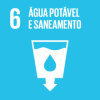The Aqua Synapse project explores the benefits of low deuterium water and how it can influence human health
Sustainable Development Goals (SDG)




The Aqua Synapse project is a project that aims to study in depth the potential positive health effects of water low in deuterium. For example, the isotope content of drinking water is known to show effects on cancer pathogenesis, and it is hypothesized that reducing heavy isotopes in drinking water (in this case deuterium) may have positive biological effects on human health, reducing susceptibility to many diseases.
The Aqua Synapse project aims to verify this hypothesis and develop mechanisms for measuring the health benefits of deuterium-poor water.
This project counts with the participation of several international partners (researchers and companies), namely: Oxford University (England); University of Würzburg (Germany); João Lobo Antunes Institute of Molecular Medicine (Portugal); HYDLLC for Cancer Research and Drug Development (Hungary); Neuroplast (The Netherlands).











